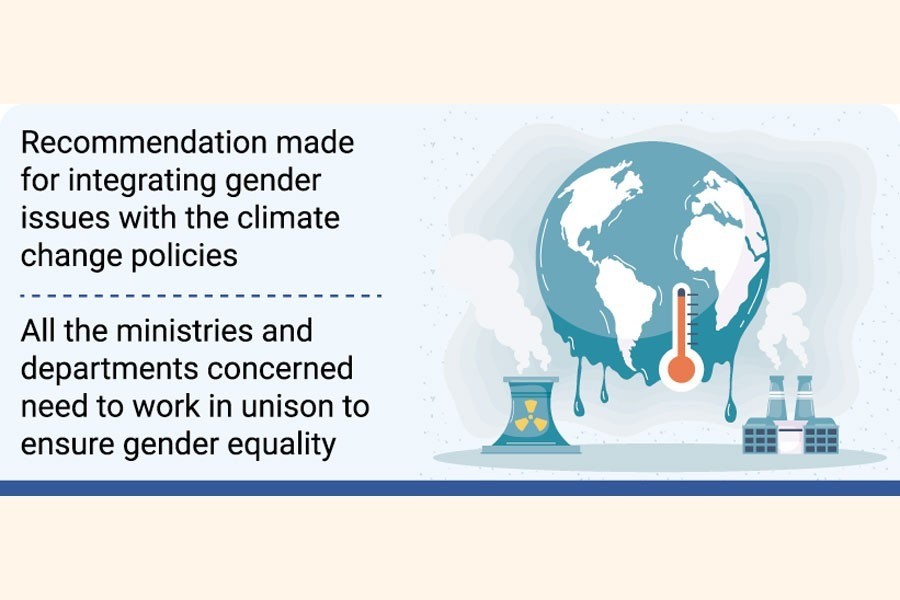Bangladesh needs more collaborative approaches, implementation tools and action plans to transform all the climate change-related national and international commitments into reality, experts opine.
They recommended collaborative approaches to integrate gender issues with the climate change policies and frameworks in this regard.
Their observations and recommendations came at a national consultation on "Update on Climate Change Gender Action Plan (CcGAP)" held at Hotel Pan Pacific Sonargaon in the city on Wednesday, according to a statement.
The event was organised to share the updated CcGAP and gather feedback from a wide range of officials and practitioners on climate change and gender issues.
"All the ministries and departments concerned need to work together to ensure gender equality. More collaborative approaches, strengthening capacity on specialised knowledge, skills on gender equality and intersectionality are crucial to take pro-active decisions to create a fair, accessible and just society that is equitable for all," said Dr Farhina Ahmed, secretary of the Ministry of Environment, Forest and Climate Change (MoEF&CC).
"I am influenced by the belief of Kamla Bhasin. And I do believe dedication and gender equality cannot be achieved only by 9-5 work. It's a belief, ideology, and that needs to be nurtured by all," she added.
Earlier the MoEF&CC drafted the CcGAP with an aim to align it with the Bangladesh Climate Change Strategy and Action Plan (BCCSAP 2009).
Since then, there have been many advancements at both international and national levels, including the Sustainable Development Goal (SDG) no 13, Paris Climate Agreement, Mujib Climate Prosperity Plan, Delta Plan, Perspective Plan and National Adaptation Plan (NAP).
Aligning with these new key drivers for climate change, CcGAP has been revised so it can bring the necessary changes in the national policies, strategies and sectoral plans that address the needs of women in the context of climate change.
UN Women in partnership with Bangladesh Climate Change Trust (BCCT) under the leadership of the MoEFCC with the technical support from International Union for Conservation of Nature (IUCN), Bangladesh Centre for Advanced Studies (BCAS), and Centre for Climate Change and Environmental Research (C3ER) has led the process of updating of CcGAP, added the statement.
"Bangladesh is excelling in gender equality as well as in climate change, we now want to merge these two to maximise the impacts of our efforts, and national tools like this gender action plan on climate change are a contribution towards that end," said MoEF&CC additional secretary Iqbal Abdullah Harun.
"We all know women are more vulnerable due to the negative impact of climate change. UN Women is dedicated to ensuring gender equality and the empowerment of women," said UN Women Bangladesh Programme Specialist Dilruba Haider.
"The revised and updated Climate Change Gender Action Plan will be a national policy document that would help all of us including the ministries and departments concerned to integrate gender with the climate change issues and other relevant sectoral approaches and strategies," she noted.
Participants from the ministries and departments concerned, development partners, UN agencies, NGOs, Civil Society Organizations (CSOs), researchers, and academia attended the event.
munni_fe@yahoo.com


